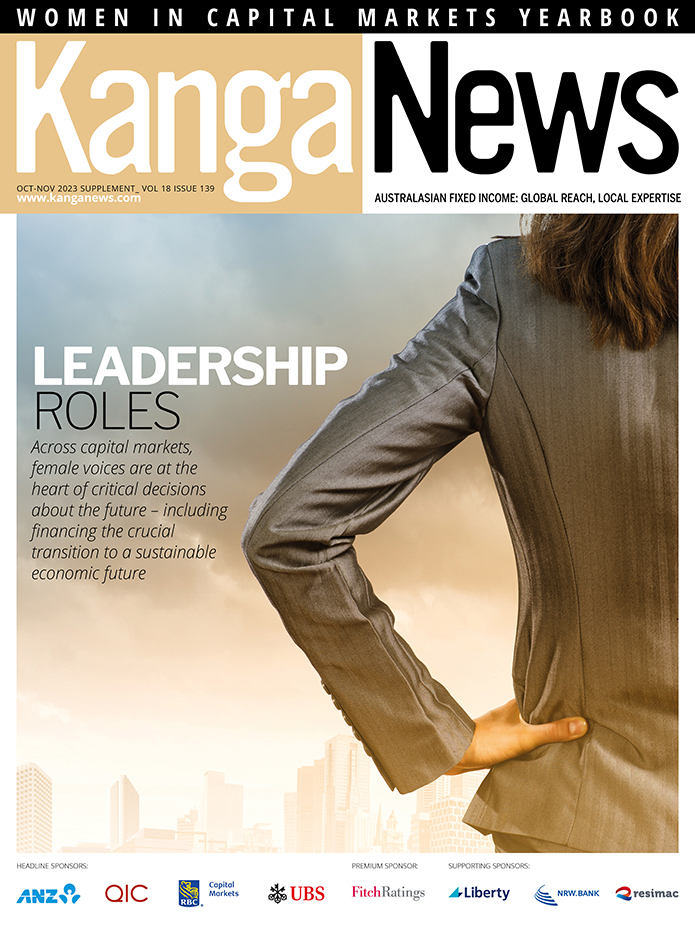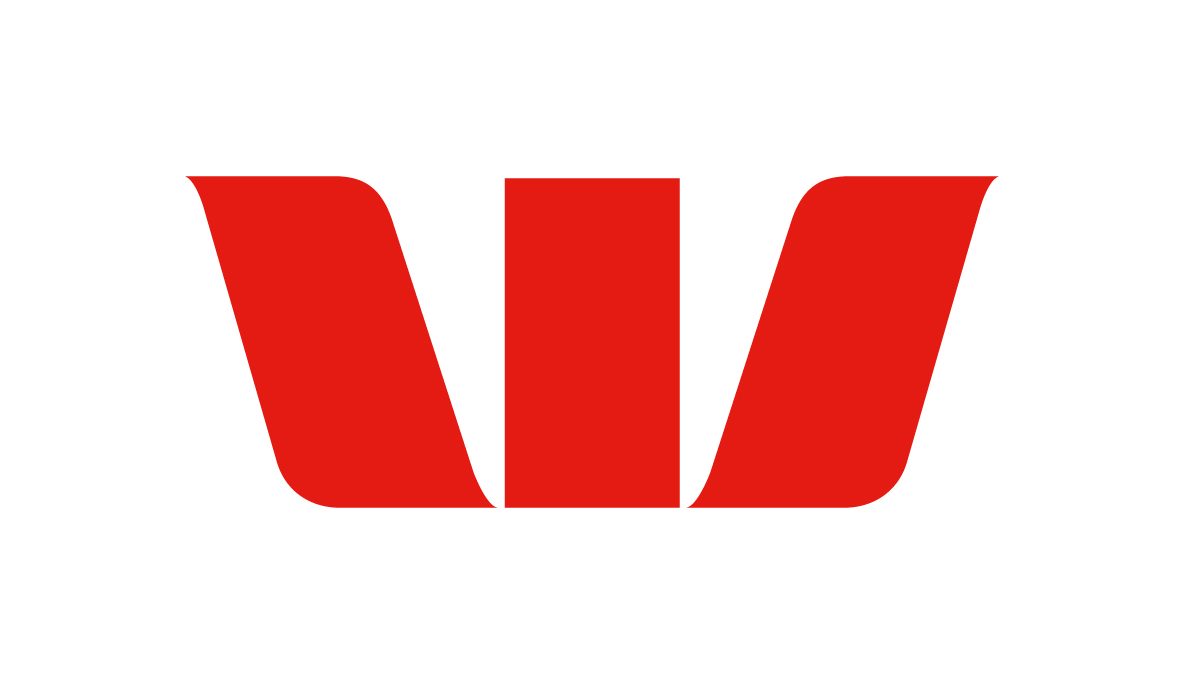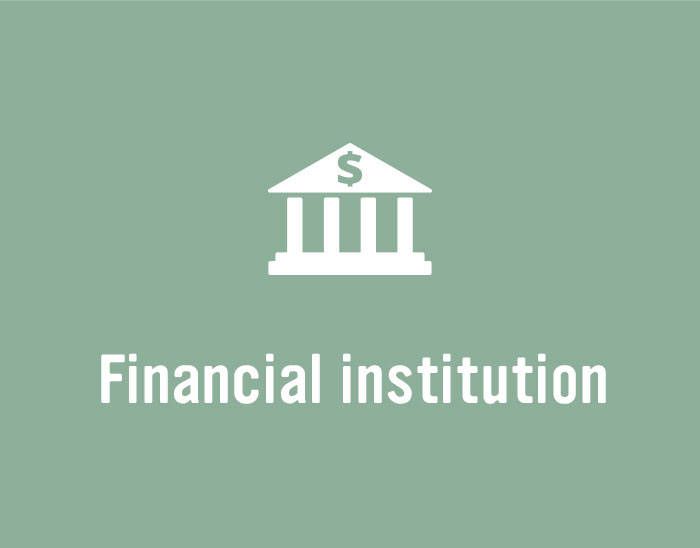
Diversity and inclusion a staple at Westpac
Three Sydney-based members of Westpac Institutional Bank (WIB)’s debt capital markets team speak to KangaNews about diversity and inclusion (D&I) in the Westpac group. They are Debbie Connelly, managing director and head of corporate and institutional origination and distribution, Eliza Mathews, director, sustainable finance, and Michelle Smith, associate director, corporate sales.
How did you find your way into capital markets? Can you each share a positive or important experience for you as a woman during your career?
CONNELLY I have always worked in financial markets, in sales and trading, and mostly in distribution roles working with customers. Capital markets are ever changing and are interconnected with what is going on in the world, and I enjoy the rapidly changing environment.
I am defined by the need to prove myself to myself. In the early stages of my career, my leadership was based on expertise. As I have matured, the focus has been more on leading through my people and through the strategic direction of the business. I take pleasure from seeing other people grow.
I have worked in financial markets for 30 years, so I have seen plenty. What I can say with confidence is that the workplace environment is materially different now from how it was at the beginning of my career. The opportunities for women have never been better than they are today.
Even though there are still challenges in the industry, the barriers to entry are vastly reduced and the stereotypes have diminished considerably. It is a supportive environment for women today, which is quite different from the late 1980s.
One of the ways I would characterise the late 1980s and early 1990s is that there was an unconscious rule that if I was in a meeting and had a view on something I didn’t have an equal right to offer a meaningful contribution to the issue at hand. It was never spoken about. It was simply an unwritten rule that there wasn’t a seat at the table, and you adapted to that role because that was how people saw you.
There has been a generational shift around women in the workplace. In today’s environment, I don’t think being a woman holds me back in any way. I feel a responsibility and a desire to help as many young women as I can. We just need a more balanced representation in our industry.
MATHEWS Prior to moving into sustainable finance, the majority of my career had been in the loans business. I worked in Sydney before moving to Singapore and Hong Kong for several years. When I moved back to Sydney, in 2016, I joined sustainable finance and became more involved in capital and financial markets.
It was a change to a side of banking that was new to me but that I really enjoyed learning about. Moving into sustainable finance has been a real career highlight for me. Being able to match my personal objectives around sustainability with my role has been very rewarding.
I agree with Debbie that the market has changed significantly. Aside from the types of comments Debbie has raised, I have heard that, in the past, women didn’t support women. This just doesn’t happen anymore. What I see is senior women supporting other women.
The important next step in achieving gender balance is supporting men to take on what has been traditionally a woman’s role – that is, a more balanced family life. This step change is being achieved through policies on everyone having access to flexible working such as encouraging men to take paternity leave. This is the only way to make the next leap, in my opinion – family life needs to be balanced for both parents. I am seeing organisations support this.
How do you expect parenthood to affect your career?
MATHEWS Career is important to me and I really enjoy my job. I have worked incredibly hard to build relationships and to produce high-quality transactions. While I am very excited to enter parenthood, I am aware that my career has good momentum and the challenge is around how it might be affected when I step away for a short while.
I have supportive colleagues, including senior sponsors, around me. I also look to people like Debbie, who have been through this experience and have had very successful careers. Hearing their perspectives, I feel confident this new experience will be a positive one and I look forward to continuing to drive progress in the market.
CONNELLY I needed the stimulation and satisfaction that I got out of work. It is part of who I am. I was cognisant that I still needed fulfilment from work to be the best mother I could be.
If you decide motherhood is your new vocation, that is okay too. There is no way to know ahead of time. However, women should not be worried about their career trajectories and there are plenty of examples of women having a parenting break and surging on.
What practical measure do you think is best for creating a greater gender balance across the financial sector?
MATHEWS There is no doubt unconscious bias exists. There are programmes in place to raise awareness and having targets is one means by which policy can be beneficial. We have recently recruited for the sustainable-finance team. We had 50 per cent representation of women in the shortlist and on the interview panel.
I would like to say I don’t have a bias but I am sure I do, despite my best efforts. The 50 per cent quota acts as a support to ensure every applicant is heard properly and has their merits assessed by a broad and diverse group.
"The important next step in achieving gender balance is supporting men to take on what has been traditionally a woman’s role – that is, a more balanced family life. This step change is being achieved through policies on everyone having access to flexible working such as encouraging men to take paternity leave."
Can you explain how Westpac’s D&I approach supports the bank’s publicly stated ambition to be “one of the world’s best service companies”?
SMITH I am involved with the D&I council at WIB level and we liaise with number of representative bodies throughout the group. We tailor an approach for each business unit, and the D&I council is also supported by 10 different employee action groups (EAGs). These can be anything from Women of Westpac, which is focused on gender equality, to ABLE, which is focused on non-able-bodied people, and various cultural groups.
What stands out for me about these EAGs is that they are constantly evolving and changing. We had a flexibility EAG that was designed to promote workplace flexibility throughout the group. It got to the point that flexibility is so well engrained in the culture of the Westpac group that we didn’t need the EAG anymore, which speaks highly of the organisation.
From a WIB perspective, the area that receives a lot of focus is gender diversity. Recently, though, we have also seen a greater focus being placed on flexibility. While the flexibility EAG has been disbanded, the concept is important in WIB at the moment.
CONNELLY There are business practices that affect outcome and a number of tactical things we do to ensure representation is appropriate. For example, we have hard targets for women in leadership, hiring mandates around the percentage of women on candidate shortlists, and radars for top talented women and for the development of women.
What are the positive impacts of inclusion?
MATHEWS We often focus on gender diversity but it is also important to consider diversity more broadly, including diversity of experience. Westpac seeks to hire people from diverse backgrounds and this helps us better understand customer needs.
CONNELLY Sometimes I wonder why we still debate the positive impacts of inclusion, because they are so obvious. The best way for us to connect with the rest of the world and to get a perspective that mirrors reality is to have diversity in our workforce.
SMITH I agree that we are not where we want to be. But the continual work and focus we have around diversity and inclusion is what motivates me. It is a moving target and I think it would be very dangerous to be content with ticking boxes. The workforce is continually changing so we have to be flexible and adaptive to what diversity and inclusion goals will evolve to be going forward.
Has COVID-19 meant any immediate changes in how Westpac operates and do you see any coming through in the future?
SMITH Flexibility at group level is very well engrained to the point that it is business as usual. From a financial-markets perspective, in WIB, it is a little less so. We have regulation that makes it difficult for us to work from home – but clearly this is not the only way to work flexibly.
The inability to work from home because of regulation is something that has had to change because of COVID-19. Flexibility may have been lower on the priority list but it has come to the forefront in the last couple of months.
We have been looking at ways in which we interact within our teams and with each other. The group has also sent information on mental and physical health to everyone to ensure new working arrangements are supported. We have shifted and changed with the times.
Flexibility is going to need to be talked about as we start the return-to-work process, because everyone’s perception of flexibility has changed. We have potentially turned the corner a lot faster, perhaps even by a couple of years. This is not just Westpac, this is globally. We have shown that a lot of things we doubted are possible, because we have been forced to do them.

WOMEN IN CAPITAL MARKETS Yearbook 2023
KangaNews's annual yearbook amplifying female voices in the Australian capital market.









